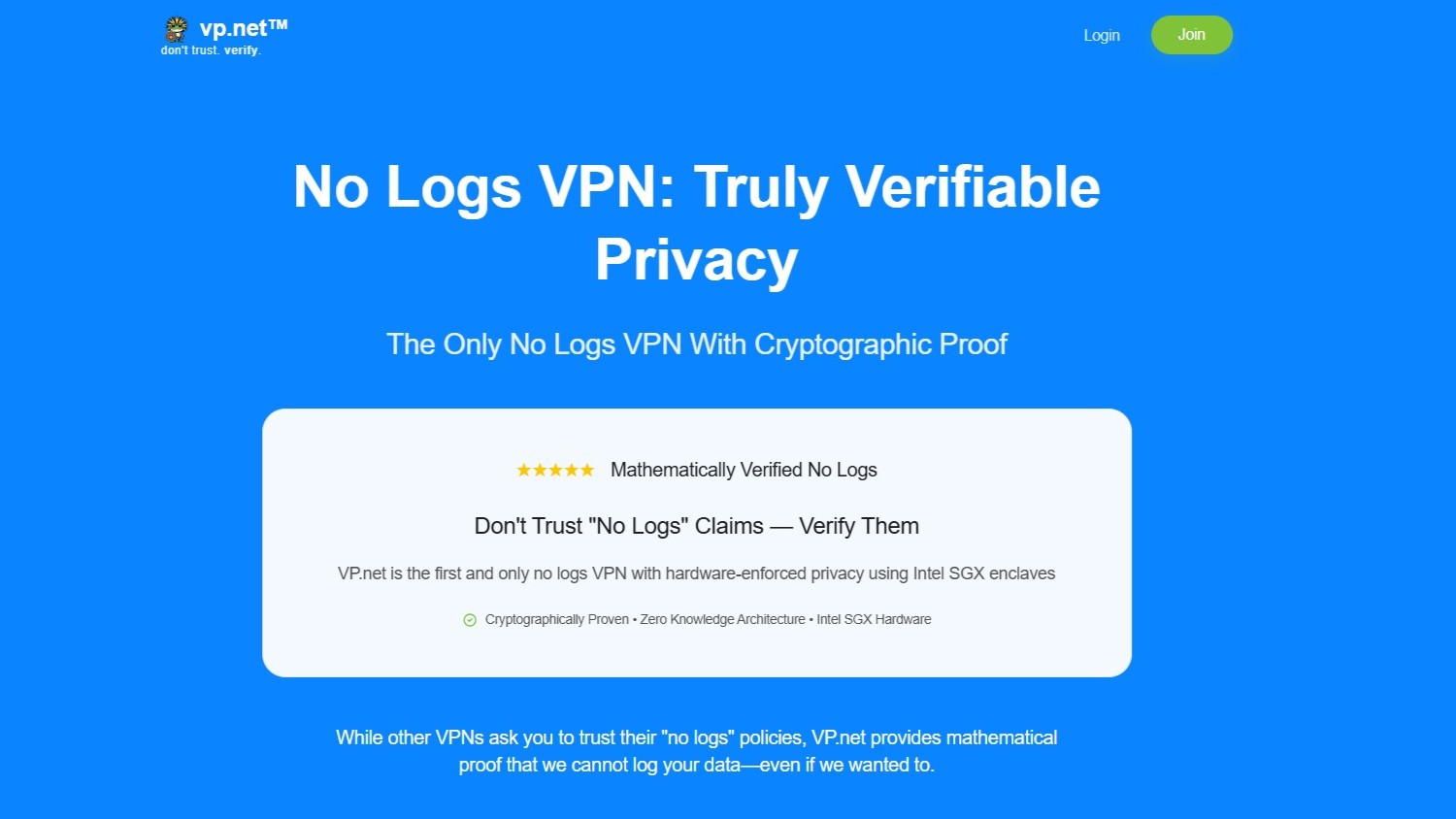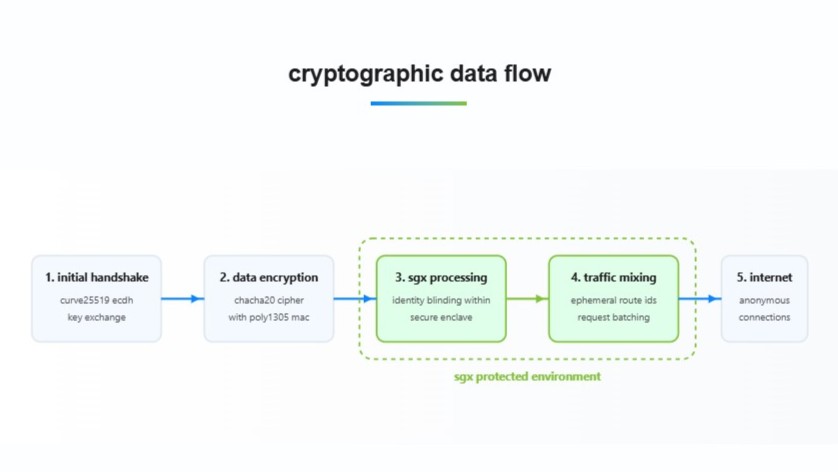Forget no-log claims – this new VPN promises its tech can never reveal your identity, even if it wanted to
VP.net uses Intel SGX hardware to supposedly deliver "cryptographically verifiable privacy"

- Launched on July 27, 2025, a new VPN service seeks to fix issues with providers' trust
- VP.net uses Intel SGX hardware to supposedly deliver "cryptographically verifiable privacy"
- Researchers uncovered some vulnerabilities with Intel SGX systems in the past
A new VPN service has just landed in the market, promising to take a completely different technical approach to users' privacy.
Short for Verified Privacy, VP.net claims to be built in a way that physically separates users' identities from their browsing activity at the hardware level. By doing so, the provider seeks to fix issues linked to virtual private network (VPN) providers' trust. So, forget no-log VPN policies and welcome "cryptographically verifiable privacy."
The provider launched the app on June 27, 2025, across all major platforms, namely Windows, macOS, Linux, Android, and iOS, and now strives to become the VPN of the future. Yet, not without some controversy.
The problem with no-log policies

All the best VPN services currently offer strict no-log policies. These guarantee that the provider never stores any of your identifiable data and are regularly checked with independent no-log audits.
The problem is that even third-party VPN audits require a dose of trust.
"An audit only proves that something was true at that moment in time. This is why we're bringing math and verifiable cryptography back into the mix so that when we say you're private, you're actually private," one of VP.net's founders, Andrew Lee, told TechRadar.
The founder of Private Internet Access (PIA), a popular no-log VPN provider, Lee later realized that many users now need a level of privacy that's not based on trust. He then teamed up with other privacy-committed developers to build a new type of VPN service.
That said, it's worth noting that PIA is among the companies that have proved their no-log claims in real life over the years, doing so not once but twice in court. Another example is Mullvad, which left a police raid empty-handed in Sweden back in 2023.
What VP.net does differently
The big novelty with VP.net lies in its tech. The company uses Intel SGX hardware, which promises to deliver "cryptographically verifiable privacy."
For the less techie out there, all you need to know is that all the sensitive operations, those that could somehow reveal your identity, occur in some so-called encrypted enclaves. These are secure and isolated spaces within the software infrastructure that physically prevent the VPN provider from accessing the activities happening inside.
Put it simply, this mechanism should make it "technically impossible to associate your identity with what you do online," explains the provider.
Not only encryption, though; the system also claims to use SGX attestation. This is a security mechanism that assures the encrypted enclaves work as they should, preventing the provider or any other third party from accessing the activities occurring inside. This is "verifiable by clients using Intel's attestation services," said the provider. You can see all VP.net's technical details here.
Crucially, VP.net also offers some protection against the tracking of metadata, meaning all the details that aren't the content. Echoing what NymVPN's innovative mixnet network and Mullvad's DAITA tool do, VP.net also employs some techniques to prevent traffic analysis and obscure actual usage patterns.

Beyond the novel infrastructure, VP.net also includes all the classic features you'd expect from a VPN.
These include support for the secure and speedy WireGuard protocol, alongside security features like a kill switch and DNS leak protection. Adding post-quantum encryption support is also in the pipeline.
All the apps are fully open-source as well, so that anyone with the technical knowledge can check the code to see if the software behaves as it should. You can take a look at the provider's public repositories by heading to the VP.net GiftHub page.
Is it really bullet-proof?
Despite the good premises on paper, Intel SGX tech is certainly not without flaws.
In 2019, for example, a team of researchers discovered a way to run and hide malware on Intel systems. Worse still, this malicious software was undetectable by antivirus tools at the time.
This may be among the reasons why Intel patched multiple security holes in 2023, addressing many existing flaws and vulnerabilities.
Such a security fix certainly doesn't fully convince everyone in the industry, including the CEO of NymVPN, which is another VPN provider seeking to challenge issues with VPN providers' trust. "I prefer decentralization and advanced cryptography rather than believing Intel has produced a silver bullet," NymVPN's CEO, Harry Halpin, told TechRadar.
Another contentious point lies behind the VP.net team. Well-known names from the Bitcoin world, both Roger Ver and Mark Karpelès have had some legal issues in the past.
Commenting on the latter point, Karpelès told TechRadar: "For the way we build the system, there is no need to trust the team behind VP.net. We provide independent systems that verified by itself, as a connection if everything is safe. So, even if I wanted to connect or do anything like that, there's no way I could do anything."
You might also like

Chiara is a multimedia journalist committed to covering stories to help promote the rights and denounce the abuses of the digital side of life – wherever cybersecurity, markets, and politics tangle up. She believes an open, uncensored, and private internet is a basic human need and wants to use her knowledge of VPNs to help readers take back control. She writes news, interviews, and analysis on data privacy, online censorship, digital rights, tech policies, and security software, with a special focus on VPNs, for TechRadar and TechRadar Pro. Got a story, tip-off, or something tech-interesting to say? Reach out to chiara.castro@futurenet.com
You must confirm your public display name before commenting
Please logout and then login again, you will then be prompted to enter your display name.